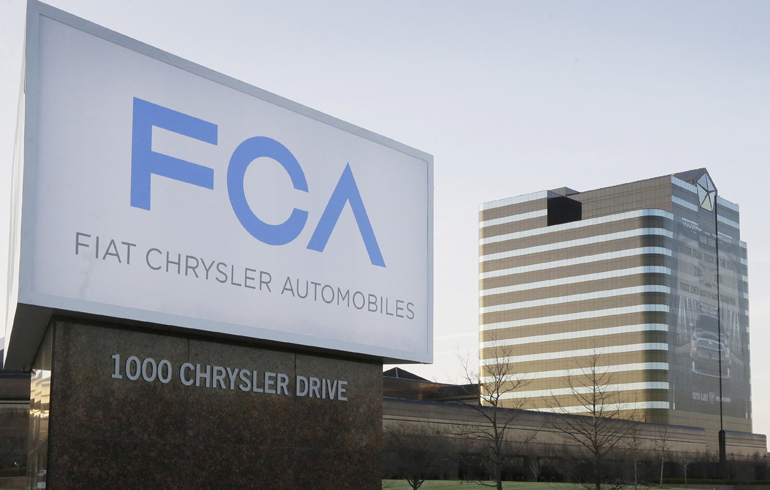Authorities in Germany, Italy and Switzerland have raided the offices of car giant Fiat-Chrysler and truck maker CNH Industrial over claims some engines produced illegal levels of emissions.
The action concerns alleged use of so-called “defeat devices” to mask vehicles’ diesel pollution output.
Engines used by Fiat, Alfa Romeo and Jeep, as well as CNH’s Iveco trucks are the focus of the probe.
UK authorities have also asked two firms in London to provide documents.
Fiat-Chrysler Automobile (FCA) and CNH Industrial (CNH) are both controlled by Exor, the holding company of Italy’s Agnelli family.
A statement from Eurojust, a European Union agency for criminal cooperation across member states, said the probe is looking into a “number of people” who may have been involved in allegedly allowing use of the devices. It did not name them.
The raids, initiated by German prosecutors investigating emissions fraud, involve claims that defeat devices were used in engine management software in 200,000 vehicles.
Use of software to flatter emissions levels hit the headlines over the Volkswagen “diselegate” affair. Defeat devices allow engines to meet pollution levels under laboratory tests, but shut down the emissions control system in real-world driving conditions.
UK documents
Eurojust did not name the companies raided. However, FCA and CNH issued similar statements, acknowledging that investigators had turned up at several offices in Europe, and that they are cooperating fully with authorities.
Eurojust also said that “UK authorities have ordered two companies in London to produce relevant documents”. Again, these companies were not named.
The statement said: “Defeat devices are illegal according to the European Union regulations in place. Vehicles with defeat devices are not approved for road usage in the EU and consumers with such devices installed in their cars face possible driving bans.”
Wednesday’s raids were at three offices in Germany, in Baden-Württemberg and Hesse, three locations in the Piedmont region of Italy, and one location in the Swiss canton of Thurgau.
Source: BBC



















































